Genomic and Epigenomic Signatures in Ovarian Cancer Associated with Resensitization to Platinum Drugs
- PMID: 29229600
- PMCID: PMC5811373
- DOI: 10.1158/0008-5472.CAN-17-1492
Genomic and Epigenomic Signatures in Ovarian Cancer Associated with Resensitization to Platinum Drugs
Abstract
DNA methylation aberrations have been implicated in acquired resistance to platinum drugs in ovarian cancer. In this study, we elucidated an epigenetic signature associated with platinum drug resensitization that may offer utility in predicting the outcomes of patients who are coadministered a DNA methyltransferase inhibitor. The ovarian cancer specimens we analyzed were derived from a recent clinical trial that compared the responses of patients with recurrent platinum-resistant ovarian cancer who received carboplatin plus the DNA methyltransferase inhibitor guadecitabine or a standard-of-care chemotherapy regimen selected by the treating physician. Tumor biopsies or malignant ascites were collected from patients before treatment (day 1, cycle 1) or after treatment (after 2 cycles) for epigenomic and transcriptomic profiling using the Infinium HumanMethylation450 BeadChip (HM450). We defined 94 gene promoters that were hypomethylated significantly by guadecitabine, with 1,659 genes differentially expressed in pretreatment versus posttreatment tumors. Pathway analysis revealed that the experimental regimen significantly altered immune reactivation and DNA repair pathways. Progression-free survival correlated with baseline expression levels of 1,155 genes involved in 25 networks. In functional investigations in ovarian cancer cells, engineered upregulation of certain signature genes silenced by promoter methylation (DOK2, miR-193a, and others) restored platinum drug sensitivity. Overall, our findings illuminate how inhibiting DNA methylation can sensitize ovarian cancer cells to platinum drugs, in large part by altering gene expression patterns related to DNA repair and immune activation, with implications for improving the personalized care and survival outcomes of ovarian cancer patients.Significance: Epigenomic targeting may improve therapeutic outcomes in platinum-resistant and recurrent ovarian cancer in part by effects on DNA repair and antitumor immune responses. Cancer Res; 78(3); 631-44. ©2017 AACR.
©2017 American Association for Cancer Research.
Conflict of interest statement
Figures

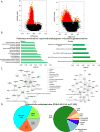
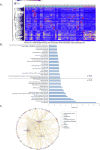
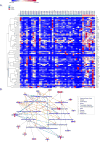
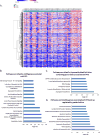
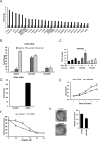

References
-
- Bukowski RM, Ozols RF, Markman M. The management of recurrent ovarian cancer. Semin Oncol. 2007;34:S1–15. - PubMed
-
- Liu CM. Cancer of the ovary. N Engl J Med. 2005;352:1268–9. author reply-9. - PubMed
-
- Barton CA, Hacker NF, Clark SJ, O'Brien PM. DNA methylation changes in ovarian cancer: implications for early diagnosis, prognosis and treatment. Gynecol Oncol. 2008;109:129–39. - PubMed
Publication types
MeSH terms
Substances
Grants and funding
LinkOut - more resources
Full Text Sources
Other Literature Sources
Medical
Molecular Biology Databases

